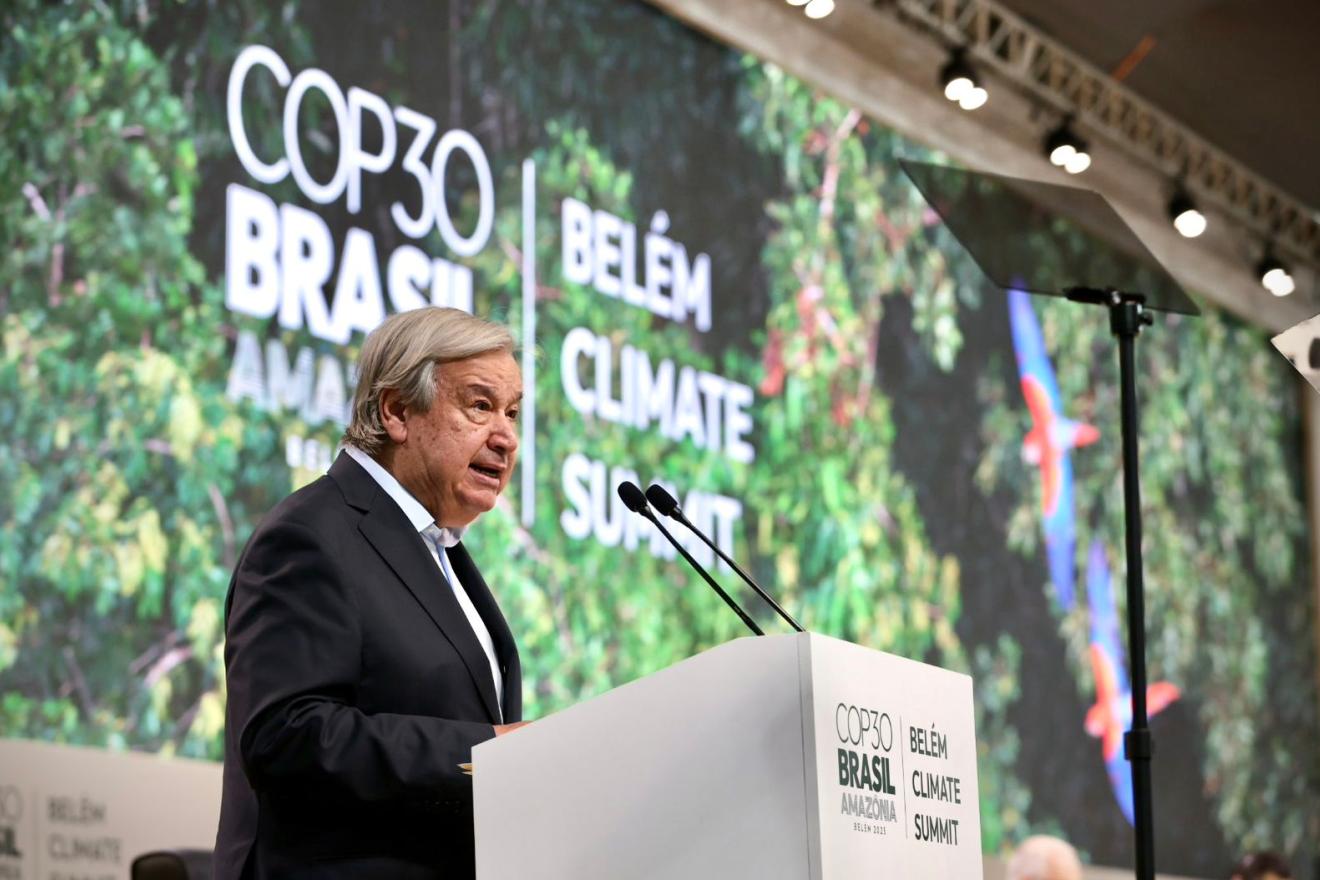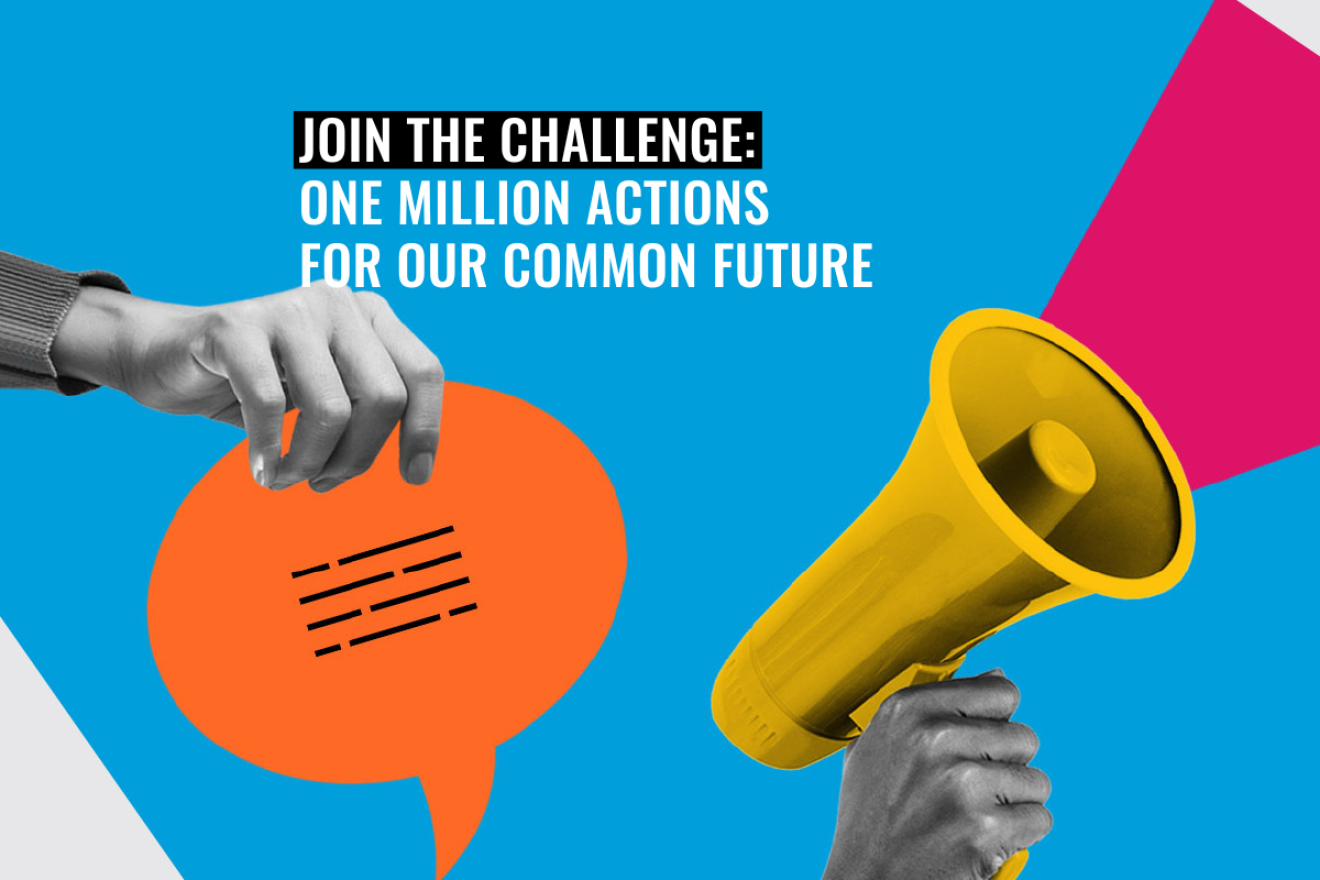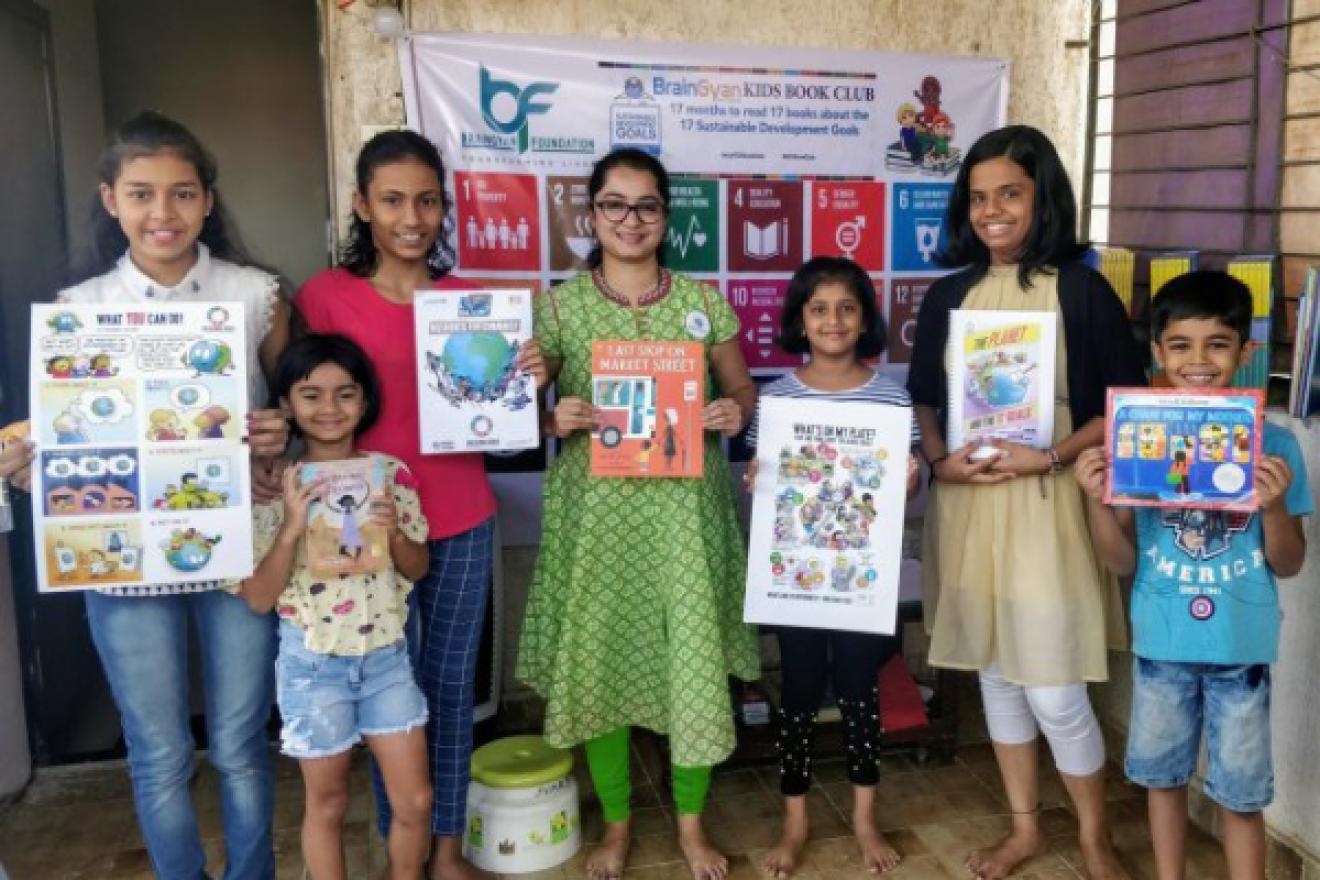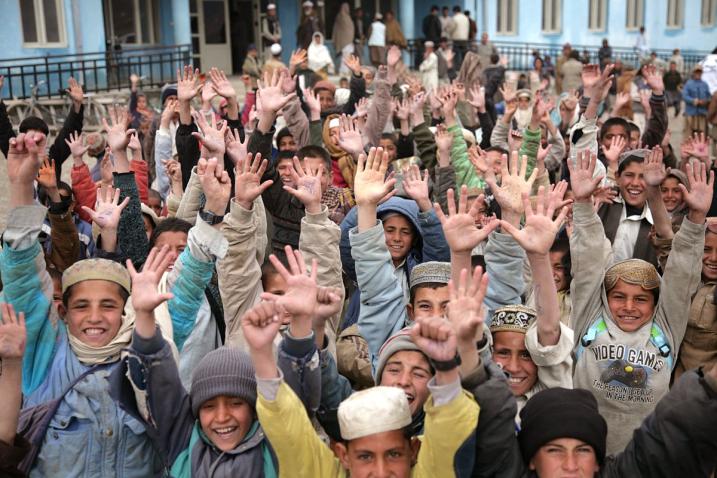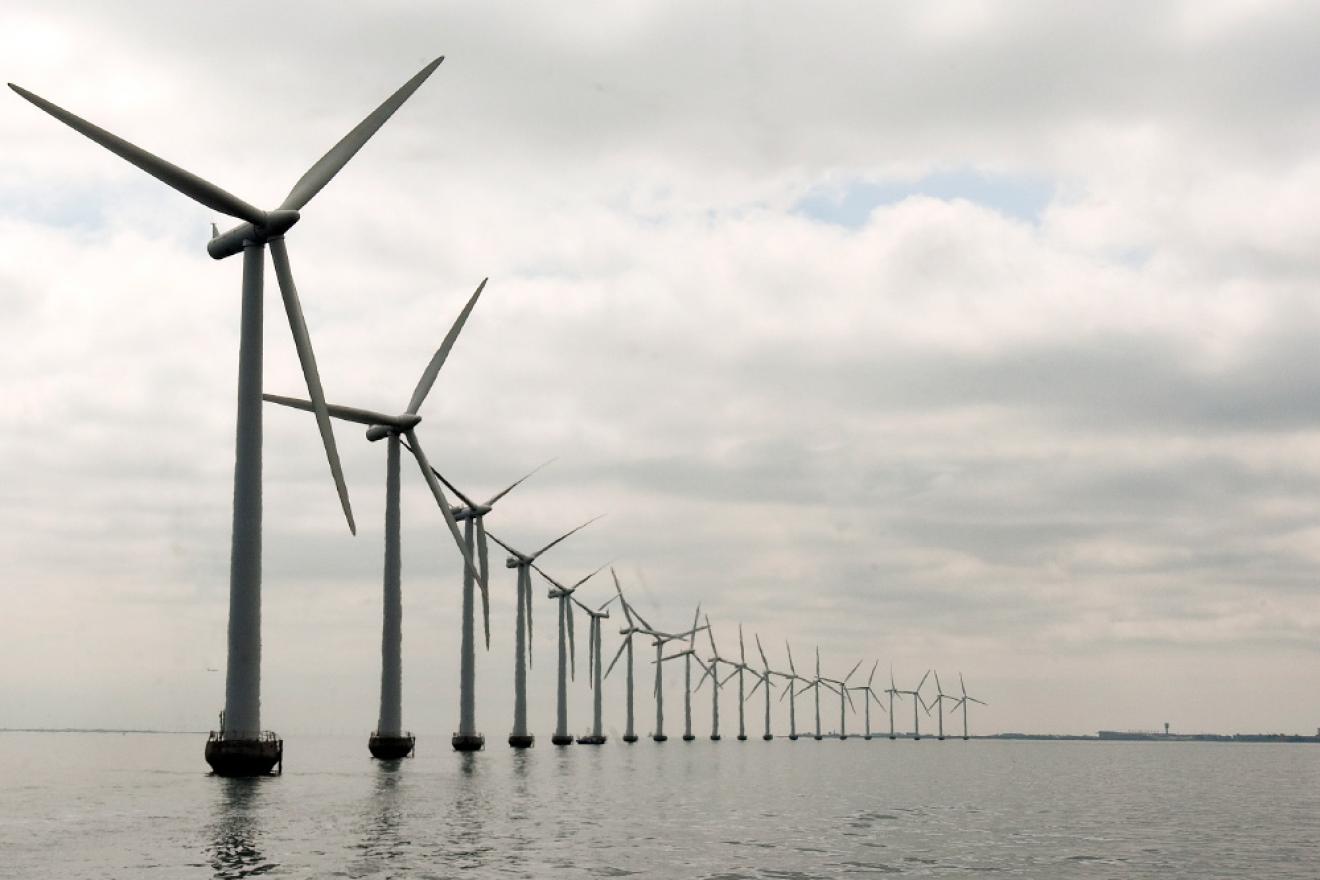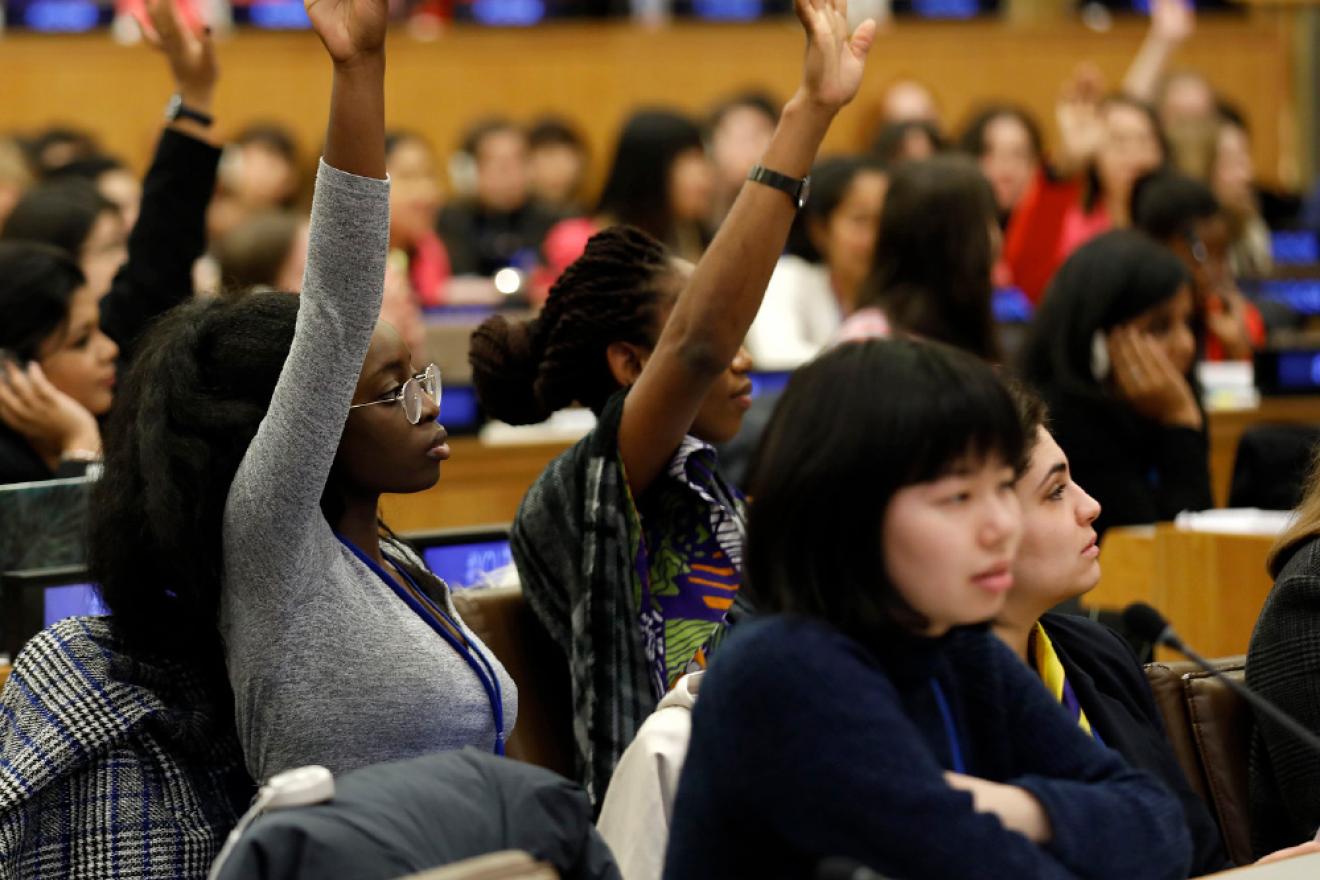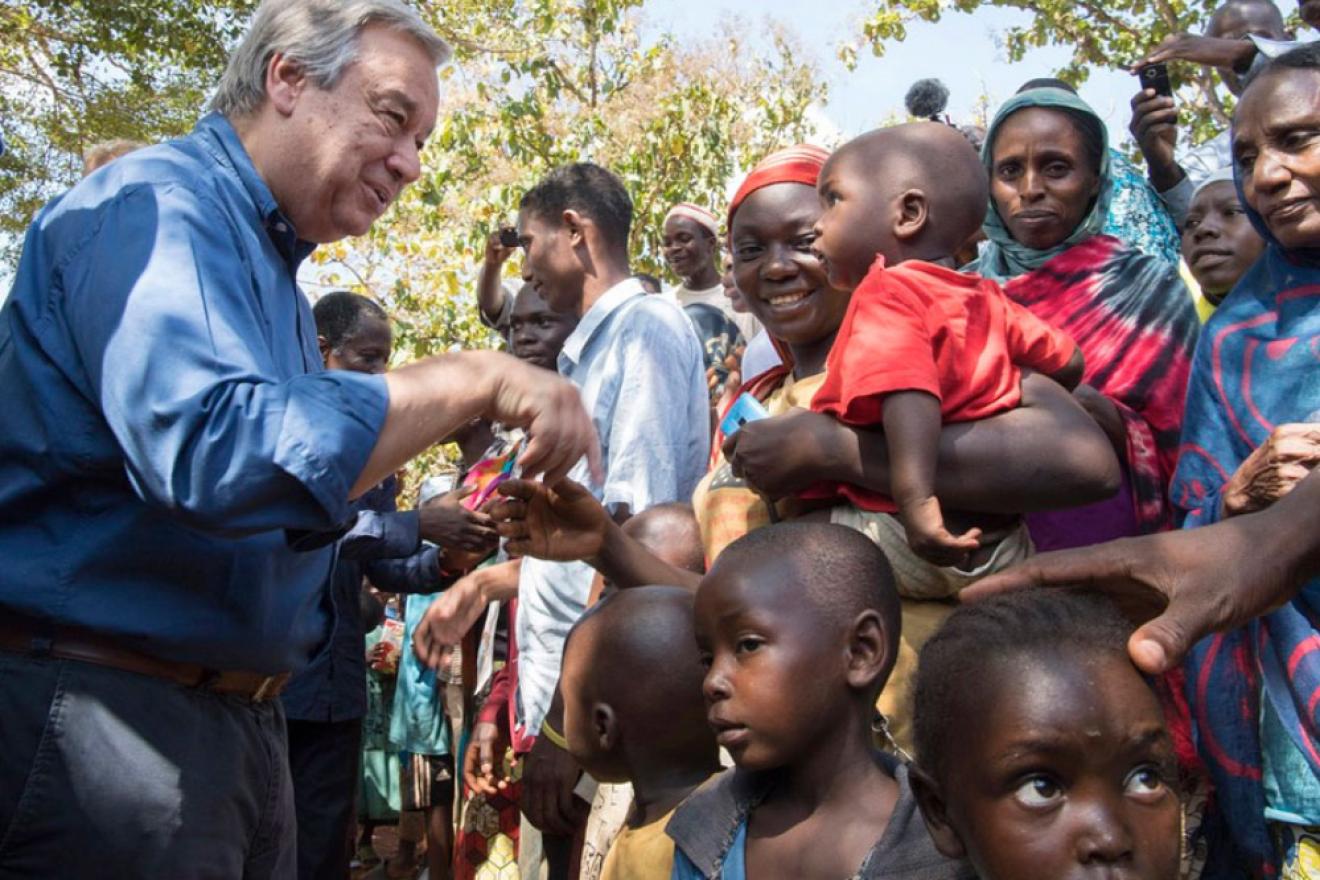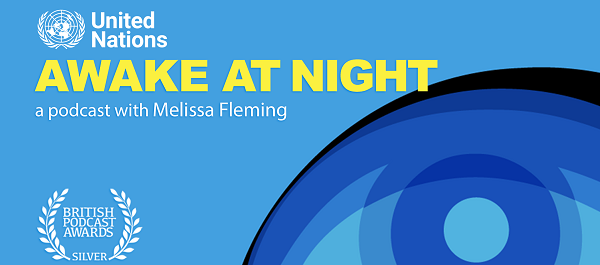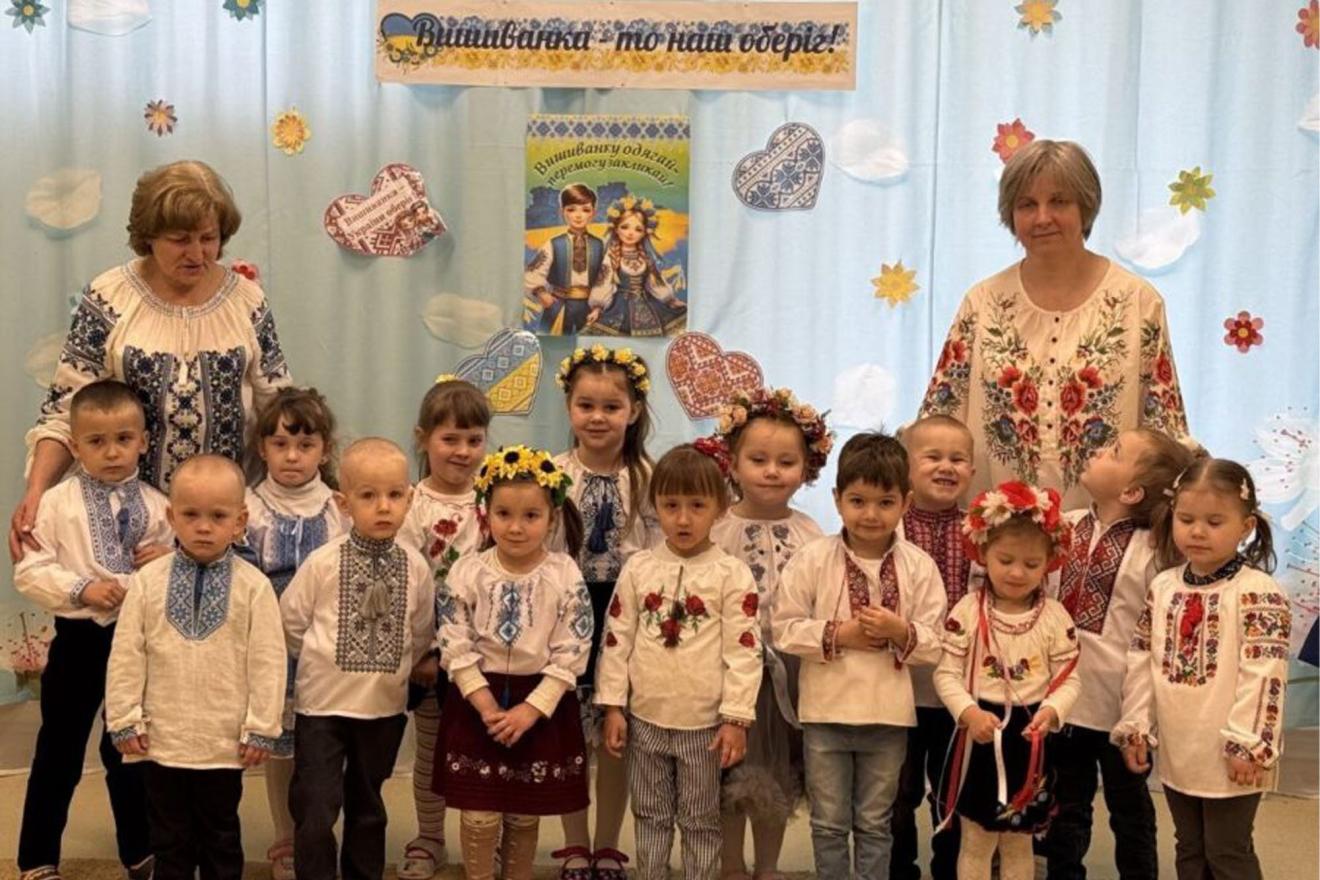The Goals can improve life for all of us. Cleaner air. Safer cities. Equality. Better jobs. These issues matter to everyone. But progress is too slow. We have to act, urgently, to accelerate changes that add up to better lives on a healthier planet. Find new inspiring actions on the app and at un.org/actnow.
UN Secretary-General addresses world leaders at COP30
At the Belém Climate Summit of the UN Climate Conference (COP30), the UN Secretary-General urged world leaders to act at speed and scale to keep the global temperature below 1.5°C. Any overshoot must be as small, short, and safe as possible, he stressed, pointing to the irreversible impacts that every fraction of a degree brings on lives, economies and ecosystems. The solutions already exist, but countries need to urgently act — invest in clean energy, phase out fossil fuels, halt and reverse deforestation, cut methane emissions, and secure $1.3 trillion in climate finance for developing countries by 2035.

